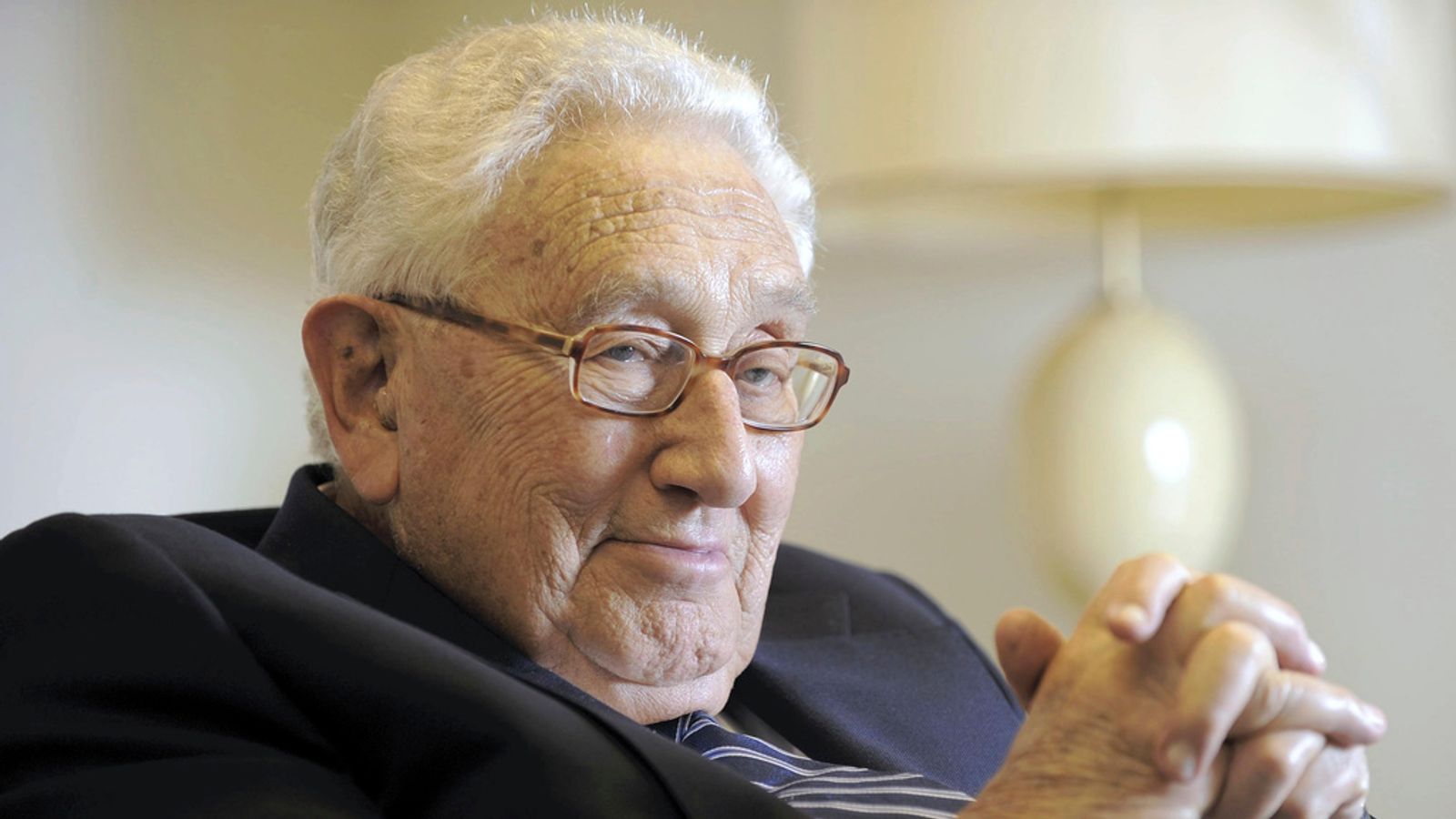Henry Kissinger was a statesman for the ages – a scholar and celebrity who once spoke of how he was able to “do things” for a number of presidents.
But while the things he did earned him the moniker “top diplomat” for some, others chose “war criminal”.
As President Nixon’s architect-in-chief on US foreign policy, Kissinger built a relationship with the world based on American self-interest and, in doing so, drafted a legacy that divided opinion.
Supporters hail the “realpolitik”, a pragmatism that underpinned how the Nixon administration interacted with allies and adversaries.
Be the first to get Breaking News
Install the Sky News app for free
Kissinger’s proactive engagement with China and diplomatic craft in dealings with the Soviet Union – dialogue, detente and nuclear arms control – is credited with reshaping the course of the Cold War.
His shuttle diplomacy during the 1973 Arab-Israeli war in the early seventies helped to contain the conflict and, in 1973, he shared a Nobel Peace Prize for his part in ending American involvement in the Vietnam War.
But critics argue that a diplomatic course hard-wired into the furtherance of US interests placed too high a priority on strategic gain – that democracy and human rights were, too often, casualties of the Kissinger doctrine.
Former United States secretary of state Henry Kissinger has died aged 100
Tributes from the world of US politics pour in for Henry Kissinger
Elon Musk accused of promoting ‘Pizzagate’ conspiracy theory
They point to the Vietnam conflict as a case in point, arguing that the deal he struck on US withdrawal could have been reached years earlier, saving thousands of lives.
He was accused of authorising the carpet bombing of Cambodia during the conflict and of supporting Pakistan’s genocide in Bangladesh in 1971 because Pakistan gave the US a diplomatic back channel to China.
Kissinger was implicated in the overthrow of a legally elected socialist government in Chile and was involved in a 1974 coup that brought down the government in Cyprus.
It is a record that doesn’t read easily.
“His uncommon story was so unique – and so thoroughly American,” said the Nixon family in a statement released upon the death of Henry Kissinger.
It is undoubtedly true of a youngster, born Heinz Alfred Kissinger, who fled Nazi Germany for New York in 1938 and rose, eventually, to high office.
He’s the immigrant to whom America gave a life and, with it, he gave America to the world.
For better and for worse.










